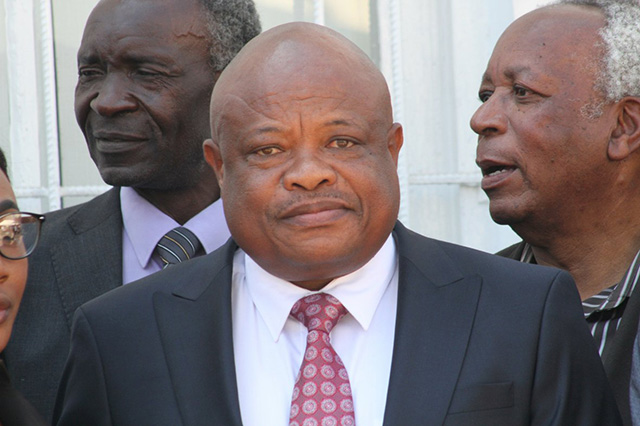Harare High Court Judge Justice Webster Nicholas Chinamora resigned from the bench ahead of an inquiry into his suitability to hold office following the compilation of a damning dossier by the Judicial Service Commission (JSC) alleging a litany of transgressions in the course of his duties.
President Mnangagwa set up the tribunal on the recommendation of the JSC which found that Justice Chinamora could have engaged in gross misconduct, interfered in the course of justice and presided over matters in which he had conflict of interest. His resignation aborts the tribunal as he is no longer a judge.
Justice Chinamora submitted his letter of resignation to the President, through the JSC on Thursday, JSC secretary Mr Walter Chikwana confirmed.
“He tendered his resignation letter yesterday (Thursday). As JSC, we are forwarding the letter to the President who is the appointing authority.”
Retired Supreme Court judge Justice Ahmed Moosa Ebrahim had been appointed to chair the tribunal along with seasoned lawyers Dr Gift Manyatera and Ms Clara Phiri, according to a Government gazette published this week.
Proclamation 9 of 2023 lays down a very strict and independent process to investigate any potential judicial malpractice and then make any recommendation about the continued service of the judge.
The Proclamation said the JSC advised the President on March 9 this year that the question of Justice Chinamora’s possible removal from office needed to be investigated and submitted a dossier of the allegations and initial investigations.
Justice Chinamora resigned after serving the judiciary for close to four and half years. From September 2014 until his appointment to the bench on August 20 2019 Justice Chinamora was an Advocate in the same set of chambers which included Advocate Thabani Mpofu, who made the complaint which triggered the process leading to the setting up of the tribunal.
Justice Chinamora was born on December 11 1963 in Domboshava, attended Chinamora Primary School and from 1977 St Francis of Assisi Secondary School until its closure in 1979 due to the escalating liberation war.
He completed his O-Levels at Visitation High School and proceeded to Bernard Mizeki College for A-Levels.
He holds a Bachelor of Law (Honours) and LLB degrees and a Masters degree in Law obtained cum laude (with distinctions).
Justice Chinamora lectured at the University of Stellenbosch and University of Zimbabwe before going to the UK where he worked for 16 years before returning home.
He is the author of three book chapters in law, and has published in law journals in Zimbabwe, South Africa and Malawi.
As a judge, Justice Chinamora has written a number of interesting and landmark judgments, including Ecocash Zimbabwe Limited vs Reserve Bank of Zimbabwe. This case, the RBZ suspended and froze the accounts of agents registered on the Ecocash money transfer platform because they were abusing their limits. The judge upheld the decision of the central bank.
The other recent judgment worth noting is the controversial Duncan Hugh Cocksedge v CABS, RBZ and Minister of Finance.
Justice Chinamora disagreed with his brother judge, Justice Joseph Mafusire in a case, which had similar facts, which had declared the “one to one” conversion rule unconstitutional. The reasoning of Justice Chinamora was that courts cannot set aside Government policy because of the separation of powers rule. This position has been established by the courts in the United States for many years.
However, Justice Chinamora tendered his resignation after the tribunal to hear allegations against him was set up by President Mnangagwa.
The tribunal would have heard the complaint by Advocate Mpofu and Adv Tawona Nyamakura, among others.
For feedback and comments, please contact ZiMetro News on WhatsApp: +27 82 836 5828.

For comments, Feedback and Opinions do get in touch with our editor on WhatsApp: +44 7949 297606.
